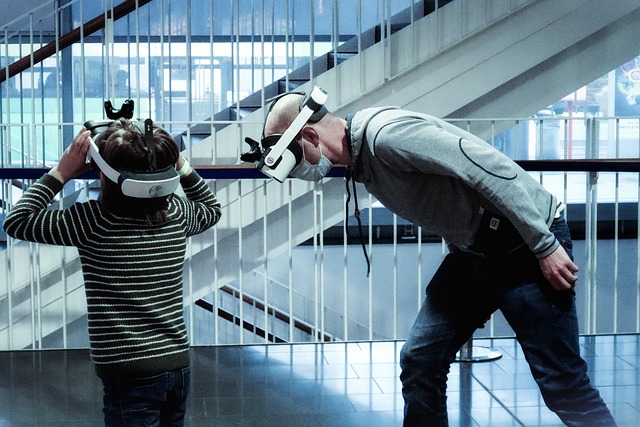# AI Innovations: Transforming Industries and Shaping the Future of Work and Everyday Life
Artificial Intelligence (AI) has emerged as a transformative force across various sectors, fundamentally altering the way we work, interact, and live. From enhancing productivity to creating novel solutions for complex problems, AI innovations are reshaping industries and influencing our daily routines. This article delves into how AI is revolutionizing different fields, its implications for the workforce, and its potential to enhance our everyday lives.
## Revolutionizing Industries
Numerous industries are experiencing profound changes due to AI technologies. Healthcare, for instance, has witnessed significant advancements through AI-driven diagnostics and predictive analytics. Machine learning algorithms can analyze vast datasets, enabling healthcare professionals to identify patterns and make informed decisions. This capability not only improves patient outcomes but also streamlines operations within healthcare systems. For example, AI applications in radiology can assist in detecting anomalies in medical imaging, thereby expediting the diagnosis process.
In the realm of finance, AI innovations are reshaping how transactions are conducted and risks are assessed. Automated trading systems utilize algorithms to analyze market trends, allowing for faster and more efficient trading decisions. Furthermore, AI-powered chatbots are becoming increasingly prevalent in customer service, providing immediate assistance and improving user experience. Financial institutions leverage these technologies to enhance customer engagement while reducing operational costs, showcasing the dual benefits of efficiency and enhanced service quality.
Manufacturing is another sector experiencing a seismic shift due to AI. The integration of AI with robotics has led to the development of smart factories, where machines can communicate with one another and optimize production processes autonomously. Predictive maintenance algorithms analyze machine performance data to anticipate failures before they occur, minimizing downtime and reducing maintenance costs. This proactive approach not only enhances productivity but also contributes to sustainability by reducing waste and energy consumption.
## Implications for the Workforce
As AI continues to evolve, its impact on the workforce cannot be understated. Many fear that automation will lead to job displacement; however, the reality is more nuanced. While certain tasks may become obsolete, AI is also creating new opportunities and roles that did not previously exist. For instance, the demand for data scientists, AI specialists, and machine learning engineers has surged as organizations seek to harness the power of AI technologies.
Reskilling and upskilling are becoming essential components of workforce development in this new landscape. Organizations are investing in training programs to equip employees with the skills necessary to thrive in an AI-driven environment. By fostering a culture of continuous learning, companies can ensure their workforce remains adaptable and competitive. Additionally, collaboration between humans and AI is emerging as a key theme, with AI systems augmenting human capabilities rather than replacing them. This synergy can lead to enhanced creativity, problem-solving, and decision-making.
Moreover, ethical considerations surrounding AI deployment are gaining prominence. Organizations must navigate issues related to bias, transparency, and accountability in AI systems. As AI technologies are increasingly integrated into decision-making processes, ensuring fairness and ethical use becomes paramount. Consequently, companies are establishing guidelines and frameworks to address these concerns, promoting responsible AI practices that prioritize the well-being of employees and society at large.
## Enhancing Everyday Life
Beyond the workplace, AI innovations are significantly enhancing our everyday lives. Smart home devices, powered by AI, are revolutionizing how we interact with our living spaces. From voice-activated assistants that control lighting and temperature to smart appliances that optimize energy usage, these technologies are making homes more efficient and convenient. The integration of AI into daily routines allows individuals to focus on what truly matters, improving overall quality of life.
Transportation is another area where AI is making strides. The advent of autonomous vehicles promises to reshape urban mobility and reduce traffic congestion. AI algorithms analyze real-time traffic data to optimize routes, enhancing efficiency and safety. Furthermore, ridesharing platforms utilize AI to match drivers with passengers, ensuring a seamless and efficient transportation experience. As these technologies continue to evolve, they hold the potential to transform how we navigate our cities.
In the realm of entertainment, AI is personalizing user experiences in unprecedented ways. Streaming services utilize AI algorithms to analyze viewing habits and recommend content tailored to individual preferences. This level of personalization enhances user satisfaction and engagement, creating a more enjoyable experience. Additionally, AI is being employed in creative fields, such as music and art, where algorithms can generate new compositions or assist artists in their creative processes. This fusion of technology and creativity opens new avenues for artistic expression and collaboration.
## Conclusion
AI innovations are undeniably transforming industries, reshaping the workforce, and enhancing our everyday lives. As organizations harness the power of AI to drive efficiency and innovation, the implications for both the economy and society are profound. While challenges such as workforce displacement and ethical considerations must be addressed, the potential benefits of AI are immense. By embracing these technologies and fostering a culture of collaboration and continuous learning, we can navigate the evolving landscape of work and life in an AI-driven world. The future, shaped by these innovations, holds the promise of increased productivity, enhanced quality of life, and a more interconnected society.











